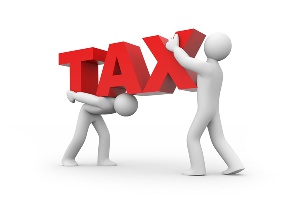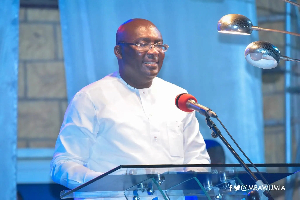Just about 1.5million people pay direct tax in the country, Dr. Edward Larbi-Siaw, Tax Policy Advisor at the Ministry of Finance, has said -- reinforcing the position of some commentators that government should widen the tax net instead of piling up more on the already taxed.
The majority of the country’s estimated 25million population is in the informal sector, where people hardly pay any tax on their incomes. The government has over the years had to offset this with transaction-based taxes like the value added tax.
Among the tax policies proposed in the 2015 budget to broaden the tax base are the imposition of a 17.5 percent VAT on petroleum products, the extension of a five percent National Fiscal Stabilisation, and Special Import Levies of 1-2 percent until 2017.
A 5 percent flat VAT rate on real-estate and increasing the withholding tax on Director's remunerations from 10 percent to 20 percent are both tax measures to ensure government maximises revenue generation.
Dr. Larbi-Siaw said the 5 percent flat VAT rate is expected to generate GH¢30million in revenue next year, while the VAT on fee-based financial services is expected to amass GH¢200million.
Government is targetting an estimated total non-oil revenue and grants of GH¢26,104.6million, equivalent to 21.2 percent of non-oil GDP for the 2015 fiscal year.
Domestic revenue for 2015, made up of tax and non-tax revenue, is estimated at GH¢30,855.4million -- 28.9 percent higher than the projected outturn for 2014.
Total tax revenue for the 2015 fiscal year is estimated at GH¢25,406.0million, representing 18.8 percent of GDP.
The new tax policies in the budget have been met with sharp criticism by the Trades Union Congress (TUC).
The TUC in a statement signed by Yaw Baah, Acting Secretary General said: “We are surprised that government is proposing to impose 17.5 percent VAT on petroleum products, given the already high prices of fuel. We would like to appeal to Parliament to reject this proposal because of the negative effects it will have on cost of living.
“We would like to assure government and the good people of Ghana that we will support the implementation of all policies we consider appropriate for the country, and resist all measures and policies we consider inimical to the social and economic development of Ghana.
"We regret to note that government policies have remained stealthily unchanged. We do not believe that the same policies that nearly led to the collapse of our economy can solve our economic and social problems, especially the excruciating poverty that has afflicted over 7 million of our compatriots.
"These are laudable proposals except that they are not new, and we do not find any new ideas and measures in the [2015] Budget that will make these interventions work this time. Specific and more radical measures are required to change course," the TUC said.
Click to view details



Business News of Monday, 24 November 2014
Source: BFT

















